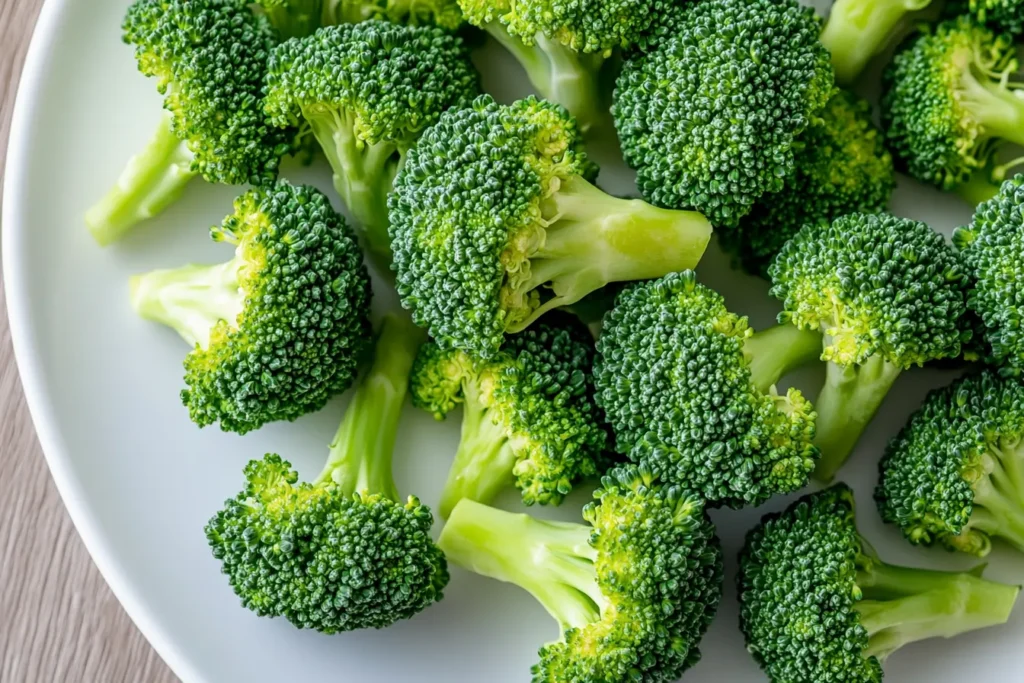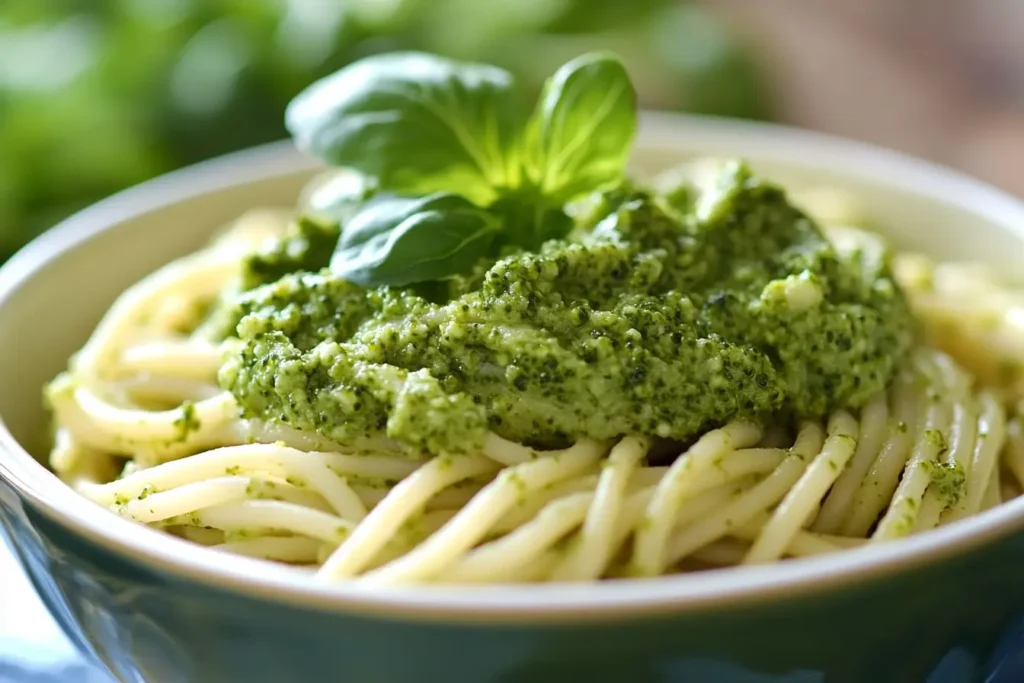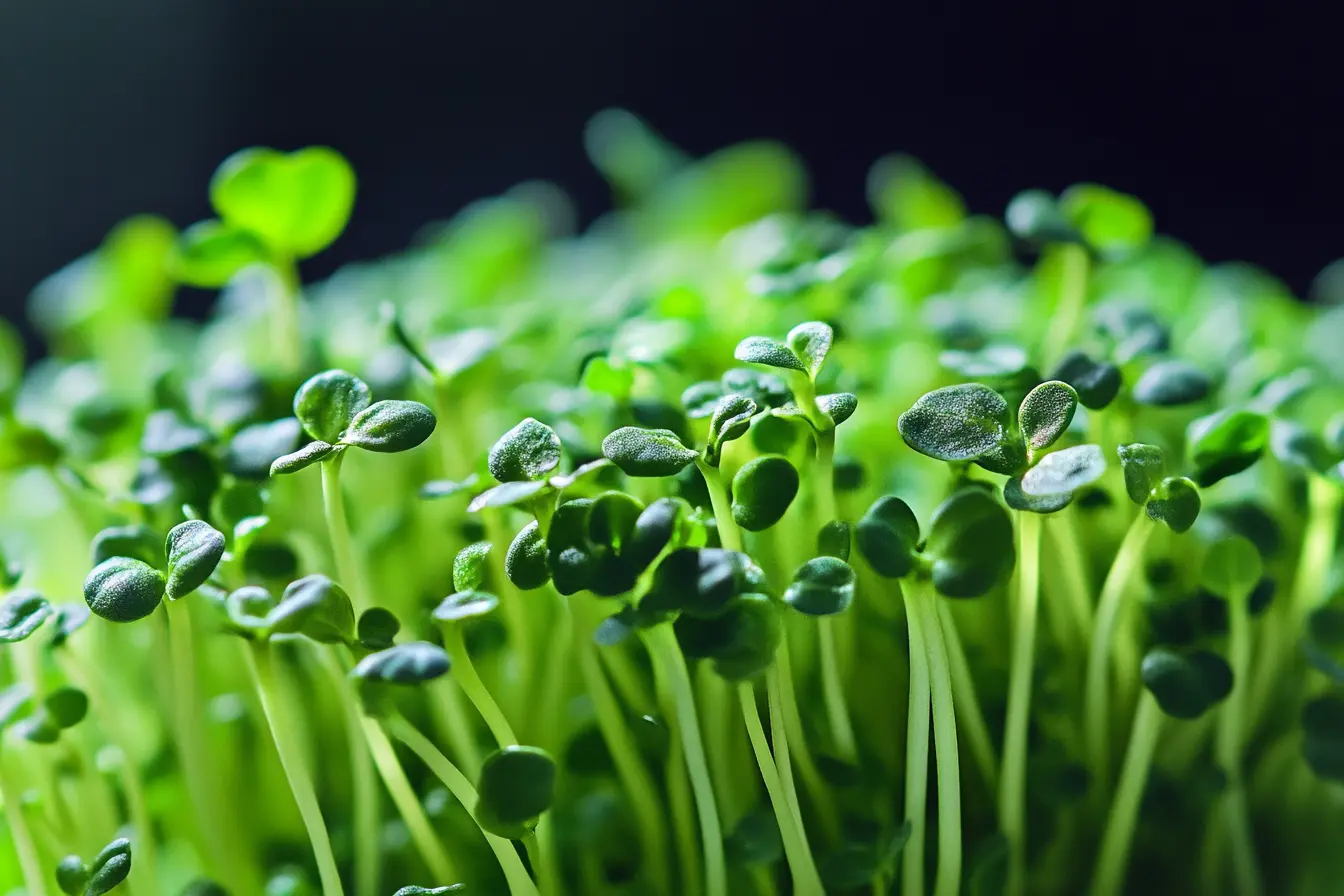Introduction
Broccoli sprouts may look like delicate greens, but these tiny shoots pack a serious nutritional punch. Bursting with sulforaphane, a powerful plant compound known for its health-boosting properties, these sprouts have gained massive popularity among health enthusiasts, home cooks, and food lovers alike. Whether you’re looking to add a crunchy element to your meals or reap their incredible health benefits, broccoli sprouts are a must-try.
In this guide, we’ll uncover everything about broccoli sprouts—from their nutritional profile and historical background to how you can grow them at home and incorporate them into delicious recipes. Let’s start by understanding what makes these young greens so special.
Introduction to Broccoli Sprouts
What Are Broccoli Sprouts?
At first glance, broccoli sprouts resemble alfalfa sprouts—thin, delicate, and slightly crunchy. But don’t let their simple appearance fool you. These three-to-five-day-old seedlings of the broccoli plant are nutrient-dense and offer a mild peppery taste that enhances various dishes.
Unlike mature broccoli, which is known for its florets, broccoli sprouts are grown specifically for their high levels of sulforaphane, a sulfur-rich compound linked to various health benefits. From salads and sandwiches to smoothies, these sprouts add a nutritional boost with very few calories.
Nutritional Profile of Broccoli Sprouts
If you’re wondering why broccoli sprouts have gained so much attention, the answer lies in their nutrient content. Despite their small size, they deliver an impressive array of vitamins, minerals, and phytochemicals.
Here’s a quick breakdown of what you’ll find in a handful of fresh broccoli sprouts:
- Sulforaphane – A powerful antioxidant and anti-inflammatory compound.
- Vitamin C – Supports immune function and skin health.
- Vitamin K – Essential for blood clotting and bone health.
- Folate – Important for cell growth and metabolism.
- Fiber – Aids digestion and supports gut health.
- Glucosinolates – Plant compounds that break down into bioactive compounds, including sulforaphane.
Compared to mature broccoli, broccoli sprouts contain up to 100 times more sulforaphane, making them one of the most potent natural sources of this compound. This is why they’re often recommended as a functional food for overall well-being.
History and Origin of Broccoli Sprouts
While broccoli itself has been cultivated for thousands of years, Sprouted broccoli gained significant attention in the 1990s. Researchers at Johns Hopkins University discovered that these sprouts contained exceptionally high levels of sulforaphane, leading to a surge in their popularity.
Historically, sprouted seeds have been a staple in various cuisines, especially in Asian cultures, where sprouts are commonly used in dishes for their nutritional value and crunchy texture. However, the specific health benefits of these sprouts only came into the limelight after scientific studies highlighted their potential in disease prevention and overall health support.
Today, these tiny greens are widely available in health food stores, supermarkets, and farmer’s markets. Many people also prefer to grow them at home due to their ease of cultivation and quick growth cycle.
Health Benefits of Broccoli Sprouts
Rich Source of Sulforaphane
One of the biggest reasons broccoli sprouts have gained superfood status is their exceptionally high concentration of sulforaphane. This sulfur-containing compound is a natural defense mechanism in cruciferous vegetables, but sprouted broccoli contain up to 100 times more than mature broccoli.
So, why is sulforaphane such a big deal? Research suggests that it helps activate the body’s detoxification pathways, boosting the liver’s ability to eliminate harmful toxins. This process supports overall cellular health and protects against environmental stressors.
Additionally, sulforaphane has been linked to improved brain function. Studies indicate it may promote the growth of new brain cells and protect against neurodegenerative diseases like Alzheimer’s and Parkinson’s. If you’re looking for a brain-boosting, disease-fighting food, broccoli sprouts might just be your answer.
Antioxidant Properties
Every day, your body battles oxidative stress, an imbalance between free radicals and antioxidants. Left unchecked, oxidative stress contributes to premature aging and a higher risk of chronic diseases. Luckily, broccoli sprouts are packed with antioxidants that neutralize harmful free radicals and protect your cells from damage.
In addition to sulforaphane, broccoli sprouts contain glucosinolates, vitamin C, and flavonoids, all of which support the body’s natural defense mechanisms. Regular consumption of antioxidant-rich foods like these sprouts can help:
- Slow down the aging process
- Strengthen the immune system
- Reduce the risk of oxidative damage to cells and tissues
Adding a handful of fresh broccoli greens to your meals is an easy way to supercharge your body’s resilience against everyday stressors.
Anti-Inflammatory Effects
Chronic inflammation is often called the “silent killer” because it plays a role in nearly every major disease—from heart disease to arthritis. Fortunately, the powerful compounds in broccoli sprouts act as natural anti-inflammatory agents.
Sulforaphane works by inhibiting pro-inflammatory pathways, reducing the production of inflammatory markers like NF-κB and cytokines. This can help alleviate symptoms of inflammatory conditions such as:
- Arthritis – Reduces joint pain and stiffness
- Asthma – Supports lung health and lowers airway inflammation
- Skin conditions – May improve acne, eczema, and psoriasis
By incorporating broccoli sprouts into your diet, you’re giving your body a natural tool to keep inflammation in check.
Potential Cancer Prevention
Perhaps one of the most exciting areas of research surrounding broccoli sprouts is their potential role in cancer prevention. The key player here? You guessed it—sulforaphane.
Several studies suggest that sulforaphane helps inhibit the growth of cancer cells and stimulate the body’s natural ability to eliminate harmful toxins. Here’s how it works:
- Boosts detoxification enzymes – Helps the body neutralize carcinogens before they cause harm.
- Induces apoptosis (cell death) – Encourages the body to destroy damaged or cancerous cells.
- Prevents tumor formation – Slows the growth of certain types of cancer cells, including those in the breast, prostate, and colon.
A study published in the Journal of Nutrition found that consuming sprouted broccoli significantly increased the activation of cancer-fighting genes. Another study from Johns Hopkins University linked regular intake of sulforaphane-rich foods to a lower risk of cancer development.
While broccoli sprouts aren’t a magic bullet, they are a powerful addition to a cancer-fighting diet. Pair them with other nutrient-rich foods for the best protective benefits.
Support for Cardiovascular Health
Heart disease remains the leading cause of death worldwide, but what if something as simple as adding fresh broccoli greens to your diet could help protect your heart? Research shows that sulforaphane may:
- Reduce blood pressure – Helps relax blood vessels, improving circulation.
- Lower cholesterol levels – Supports a healthy lipid profile by reducing LDL (“bad”) cholesterol.
- Prevent arterial plaque buildup – May reduce oxidative damage that contributes to heart disease.
A study published in the American Journal of Hypertension found that individuals who consumed broccoli sprouts regularly experienced improvements in blood pressure and vascular function. The anti-inflammatory effects of these sprouts also help keep arteries flexible and clear, reducing the risk of heart-related complications.
Benefits for Digestive Health
Your gut is the foundation of your overall well-being, and broccoli sprouts provide key nutrients to support digestive health.
First, their high fiber content promotes regular bowel movements and feeds beneficial gut bacteria, which is essential for a balanced microbiome. Second, sulforaphane plays a role in reducing harmful bacteria like H. pylori, a known contributor to stomach ulcers and digestive discomfort.
Some research even suggests that sprouted broccoli may help with:
- Irritable Bowel Syndrome (IBS) – May reduce bloating and gut inflammation.
- Leaky gut syndrome – Supports the integrity of the gut lining.
- Detoxification – Assists the liver in eliminating toxins that impact digestion.
Adding broccoli sprouts to your daily meals is a simple yet effective way to keep your gut happy and healthy.

Incorporating Sprouted broccoli into Your Diet
How to Grow Young broccoli shoots
Growing Young broccoli shoots at home is ridiculously easy—no fancy equipment, no soil, and no green thumb required! In just a few days, you’ll have fresh, nutrient-packed sprouts ready to eat.
What You’ll Need:
- Organic broccoli seeds (avoid treated or non-organic seeds)
- A wide-mouth glass jar (or a sprouting tray)
- A sprouting lid or cheesecloth secured with a rubber band
- Fresh, filtered water
Step-by-Step Guide:
- Measure & Rinse: Add about two tablespoons of broccoli seeds to the jar. Rinse them well with cool water to remove debris.
- Soak Overnight: Fill the jar with water and let the seeds soak for 8-12 hours in a dark spot. This kickstarts the germination process.
- Drain & Rinse: After soaking, drain the water completely. Rinse the seeds with fresh water, then drain again.
- Sprouting Process: Store the jar upside-down at an angle (on a dish rack or propped in a bowl) to allow excess moisture to drain.
- Rinse & Drain Twice Daily: Rinse with fresh water every morning and evening to keep the sprouts hydrated and prevent mold.
- Ready in 4-5 Days: Your broccoli seedlings will be fully grown in about 4-5 days. Once they have long white stems and tiny green leaves, they’re ready to eat!
- Final Rinse & Store: Give them a final rinse, pat dry, and store them in the fridge for up to 5 days.
That’s it! Fresh, homegrown these sproutsin less than a week.
Selecting and Storing Broccoli Sprouts
If growing your own sprouted Brocoli isn’t an option, you can find fresh ones at grocery stores or farmers’ markets. But not all sprouts are created equal—here’s what to look for:
How to Select the Best Broccoli Sprouts:
Vibrant green leaves – Avoid yellow or wilted sprouts.
Fresh, crisp stems – They should feel firm, not slimy.
Mild, peppery aroma – A strong, off-putting smell means they’re past their prime.
How to Store Broccoli Sprouts for Maximum Freshness:
- Keep them in an airtight container lined with paper towels to absorb excess moisture.
- Store in the coldest part of your fridge (near the back) at around 36-38°F (2-3°C).
- Rinse before eating, not before storing.
- Use within 4-5 days for the best flavor and nutrient content.
For those who want to extend shelf life, some people successfully freeze broccoli sprouts, though they may lose their crunchy texture.

Delicious Recipes Featuring Broccoli Sprouts
Time to put those nutrient-packed sprouts to good use! Here are three tasty ways to add broccoli sprouts to your meals.
🥦 Broccoli Sprout Pesto
This vibrant green pesto is bursting with flavor and works great as a dip, sandwich spread, or pasta sauce.
Ingredients:
- 2 cups fresh broccoli sprouts
- 1 cup fresh basil leaves
- ¼ cup toasted sunflower seeds or walnuts
- 2 cloves garlic
- ½ cup olive oil
- Juice of 1 lemon
- Salt and black pepper to taste
Instructions:
- Add all ingredients to a food processor and blend until smooth.
- Adjust seasoning as needed.
- Store in a sealed container in the fridge for up to 5 days.
Pro Tip: Stir this into pasta or spread it on toast for an easy, nutritious boost!

🥗 Tangled Carrot & Broccoli Sprout Salad with Tahini Dressing
This crunchy salad is loaded with broccoli sprouts, fresh veggies, and a creamy tahini dressing.
Ingredients:
- 1 cup broccoli sprouts
- 2 large carrots, julienned
- 1 cup shredded purple cabbage
- ½ cup sliced almonds
- 2 tbsp sesame seeds
Dressing:
- ¼ cup tahini
- 2 tbsp lemon juice
- 1 tbsp soy sauce (or coconut aminos)
- 1 tsp honey or maple syrup
- 2 tbsp warm water
Instructions:
- Whisk together dressing ingredients in a small bowl.
- Toss broccoli sprouts, carrots, and cabbage in a mixing bowl.
- Drizzle dressing over the salad, toss well, and sprinkle with almonds and sesame seeds.
🥢 Broccoli Sprout Summer Rolls
These refreshing rice paper rolls are packed with broccoli sprouts and fresh veggies.
Ingredients:
- 1 cup broccoli sprouts
- 8 rice paper wrappers
- 1 avocado, sliced
- 1 cucumber, julienned
- 1 carrot, julienned
- ½ cup shredded red cabbage
- Fresh mint and cilantro
Instructions:
- Dip a rice paper wrapper in warm water for 10 seconds. Lay flat on a clean surface.
- Layer broccoli sprouts, avocado, cucumber, carrot, and cabbage in the center.
- Add fresh herbs, then roll tightly like a burrito.
- Serve with a side of peanut or hoisin sauce.
Frequently Asked Questions
Are Broccoli Sprouts Safe to Eat Raw?
Yes, broccoli sprouts are safe to eat raw, but like other sprouts, they carry a slight risk of bacterial contamination, such as Salmonella or E. coli. This happens because sprouts grow in warm, moist environments—ideal conditions for bacteria.
To minimize risk, follow these safety tips:
Always use organic, high-quality seeds from a trusted source.
Rinse seeds thoroughly before sprouting.
Store sprouts in the refrigerator and consume within a few days.
If you’re immunocompromised, pregnant, or serving sprouts to young children, consider lightly steaming them instead of eating them raw.
Washing broccoli sprouts before consuming and maintaining proper hygiene in your sprouting setup ensures they remain a safe and nutritious addition to your diet.
How Do Broccoli Sprouts Compare to Mature Broccoli?
Both broccoli sprouts and mature broccoli belong to the cruciferous vegetable family, yet they differ in their nutritional content and flavor.
Nutritional Differences:
- Broccoli sprouts contain up to 100 times more sulforaphane, making them far superior for their antioxidant properties.
- Mature broccoli has more fiber, vitamin K, and vitamin C but lower amounts of sulforaphane.
Taste & Texture:
- Broccoli sprouts have a mild, peppery taste, making them great for raw dishes like sandwiches and salads.
- Mature broccoli has a slightly bitter taste and is often cooked.
If you’re looking for maximum health benefits, incorporating both into your diet is the best approach!
Can Broccoli Sprouts Interact with Medications?
Yes, broccoli sprouts can interact with certain medications due to their high sulforaphane content, which affects liver enzymes responsible for drug metabolism.
⚠ Potential interactions include:
- Blood thinners (e.g., Warfarin): The vitamin K in broccoli sprouts may affect blood clotting.
- Thyroid medication: Like other cruciferous vegetables, large amounts may impact thyroid function in sensitive individuals.
- Chemotherapy drugs: Sulforaphane can alter how the body processes some cancer treatments.
If you take prescription medications, be sure to consult your doctor before increasing your intake of broccoli sprouts. This will help ensure they don’t interfere with your treatment.
Conclusion
At this point, it’s obvious that broccoli sprouts aren’t just a passing food trend. They’re a true nutritional powerhouse, packed with sulforaphane, antioxidants, and gut-friendly fiber. These tiny sprouts can support your immune system, promote heart health, or simply add a fresh, crunchy texture to your meals. Because of their numerous health benefits and versatility, broccoli sprouts deserve a permanent place in your kitchen.
The best part? They’re incredibly versatile. You can toss them into salads, blend them into smoothies, sprinkle them on sandwiches, or even use them in homemade pesto. Growing your own broccoli sprouts is also one of the easiest (and cheapest!) ways to ensure a steady supply of fresh, organic greens right at home.
If you’re looking for a simple yet powerful way to upgrade your diet, start incorporating broccoli sprouts today. Your body—and your taste buds—will thank you!


1 thought on “Broccoli Sprouts: A Tiny Superfood with Big Benefits”